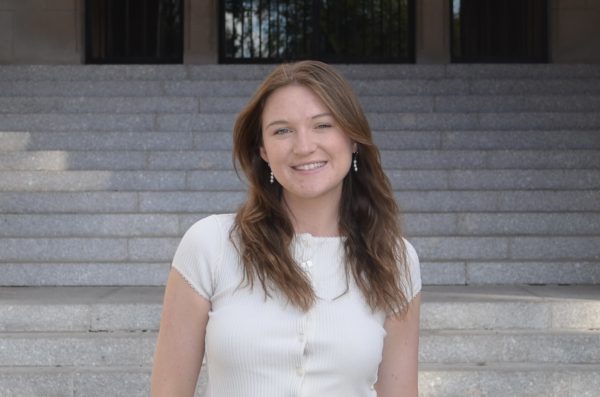Economics classes have always driven home the importance of consumer confidence in the market. If consumer confidence is low and the economy is in an overall state of anxiety, you know we’re in a sticky situation. Zillow’s recent addition of climate risk scores is designed to instill consumer confidence in the website with the increasing presence of natural disasters. More importantly, Zillow’s move ought to inspire low consumer confidence in the way our materialistic culture functions. With rising insurance premiums and plummeting home values, people from all over the political spectrum need to come together to shift our focus. Without this shift, vital human and American values are at risk.
Zillow’s new climate risk score feature contains information for five key climate-related disasters. These include flooding, wildfires, extreme heat, poor air quality and wind damage. Zillow has partnered with First Street, a climate research nonprofit, to develop these new features. First Street is a research nonprofit merging climate-tracking software with property development. Their most recent finalized funding round earned them $46 million to continue developing these technologies. Clearly, investors have confidence that technologies like this will be crucial in the future housing market.
Across the board, multiple organizations prioritizing climate resilience have been growing. People are in a state of anxiety, given the re-occurring natural disasters. People need research like this to secure their confidence before weighty purchases, especially with land. If these risk factors are accurate, concerns could be eased and the housing market could be more open. Ideally, this enables increased buying and selling of property. Moreover, with this information publicized, individuals will avoid risky purchases and insurance rates will fall.
In my opinion, this is all well and good. Hopefully, these climate risk scores will be accurate so consumers can regain confidence, and the home buying and selling market will return to a peaceful state. However, the introduction of these risk factors conveys a much deeper message. Zillow’s decision ought to inspire us to examine our own risky relationships with the earth. News of frequent climate destruction ought to make that evident.
Recent natural disasters, like Hurricanes Milton and Helene, have destroyed homes, land and lives. Utter destruction like this can never be properly rectified. In North Carolina, Chimney Rock will almost certainly never be Chimney Rock again. These stories can be demoralizing. It is shocking to see lives destroyed in ways completely out of anyone’s control. However, these stories ought to encourage a reexamination of our own perspective on the earth. Land is something that has been given to us and something that can be taken away from us. This recognition of land’s proper place in the world — not as something owed to us, but received as a gift — ought to inspire a cultural transformation away from exploitation towards grateful cultivation.
In a Catholic Social Teaching course I took last spring with Father Thomas Massaro, S.J., we often spoke about restructuring our relationship with the earth. Pope Francis, in his encyclical Laudato Si, spoke of a throwaway culture. It is a throwaway culture that has led us to the ecological disasters of our contemporary time. A throwaway culture manifests in the insatiable desire for more — especially profit. Our current throwaway culture must be transformed into a culture of integrity and gratitude. Changing our daily priorities alone won’t solve the climate crisis. However, it can allow each individual to take part in an effort of solidarity with the earth.
The fact that Zillow would include a climate risk score indicates how serious of a problem is at hand. Yes, economically speaking, this addition supports consumer confidence in their product and allows them to maximize profit. However, I truthfully think that a lot of properties will be having issues with climate risk. I know half the homes in my neighborhood in northern Virginia are in a floodplain. Zillow is potentially risking itself by adding these features. We ought to listen.
Our culture and its impacts on the climate ought to be an issue of interest to all. The right to private property is protected in our Bill of Rights. Any American should be worried about increasing climate disasters which harm their ability to buy a house. Isn’t the American Dream built upon the idea of land ownership? I am reminded of the song “Buy Dirt” by Jordan Davis and Luke Bryan. The song’s end line rings true: “You can’t buy happiness, but you can buy dirt.” Davis and Bryan sing of how land ownership is a path to dedication in family life, solidarity with a broader community and an acknowledgment of the earth’s value. If one is increasingly unable to purchase land to foster these values, this particular path to fulfillment is hindered.
Todays word “economics” comes from the Greek word “oikonomia,” which means household management. While the new Zillow climate risk score feature appears to be an economic decision, it really is a matter of household concern. If climate disasters are destroying the physical houses of many Americans, how can values that are innately linked to home life be fostered?
We cannot live in the ceaseless cycle of spending and selling any longer. We need a restoration of the value of simplicity. Perhaps I see “Buy Dirt”’s vision with rose-colored glasses, but I know crucial values are absent from society when we cannot recognize land as a gift. Zillow’s introduction of climate risk scores ought to serve as a warning for our culture. Something needs to transform to prevent our values from disappearing before we can even tell they are gone. We need to inspire more confidence, not just in our markets but more importantly in our fellow humanity.
Abigail Adams, FCRH ’26, is a philosophy major from Alexandria, Va.











































































































































































































